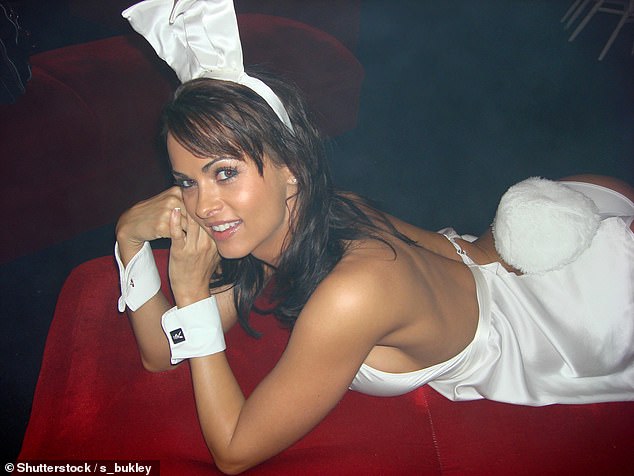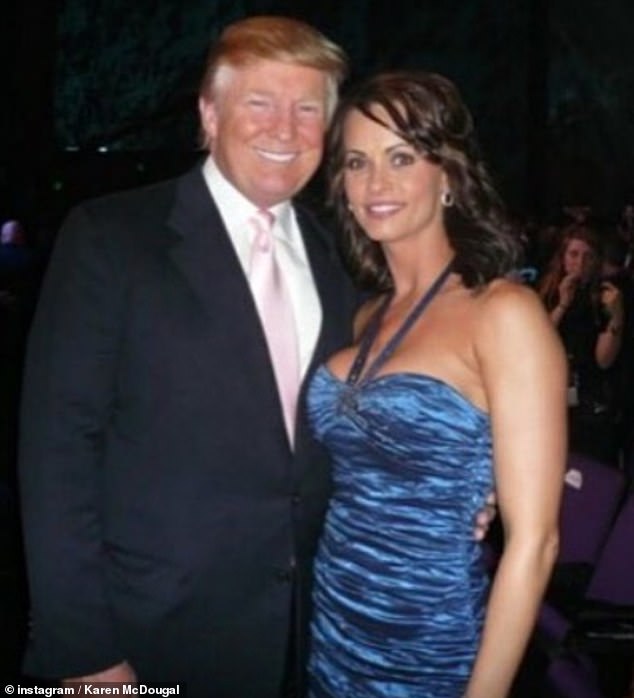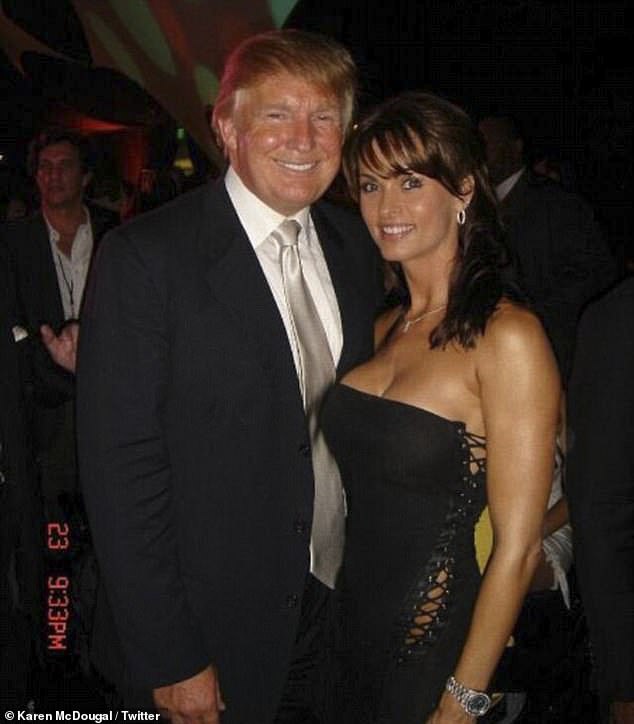Judge Juan Merchan ruled during jury selection for Stormy Daniels’ hush money trial against Donald Trump that former Playboy model Karen McDougal, who claims to have had a long-term affair with the GOP front-runner in 2016, can testify.
Trump is accused of paying Daniels, whose real name is Stephanie Clifford, $130,000 to keep her quiet about the couple’s alleged extramarital affair.
Five months before the 2016 presidential election, American Media Inc, the publisher of the National Enquirer, paid McDougal, 53, $150,000 to tell the entire story. The interview was never published.
The alleged affair became public in a subsequent interview McDougal did with The Wall Street Journal in 2016.
Trump denies McDougal’s allegations. His payment is not subject to criminal investigation, but prosecutors say it will establish a pattern of behavior by Trump, something Trump attorney Todd Blanche tried to argue.
Judge Merchan said the jury did not need to hear about the timing of the alleged McDougal affair, which the former model said occurred at the time Melania Trump was pregnant with Barron Trump.
McDougal says she and Trump were intimate over a 10-month period.
Donald Trump and Karen McDougal photographed together in 2006, the Republican Party favorite has always denied having a relationship with the Playboy model.

Trump has always denied having an affair with Karen McDougal while his wife Melania was pregnant with their child.

Originally from Gary, Indiana, McDougal was discovered by a Playboy photographer after landing several modeling jobs in the Detroit area in the 1990s.
In 2023, McDougal told MailOnline that her relationship with Trump was no coincidence.
“I was in love with him. He was in love with me. I know this because he told me that all the time. He was like, ‘You’re my baby and I love you.'” He showed me off to his friends.
‘They portray me as the discontented woman, but I am not that woman. I finished it,’ she continued.
She had been thinking about ways to get out of the relationship, she says: “A family member came to town, we went to a bar and I met a lovely man called Bruce.”
The Bruce she is referring to is Die-Hard actor Bruce Willis, with whom she was photographed, hand in hand, on vacation in Italy a few months later in 2007, and with whom she dated for six months.
“I wasn’t trolling Trump, but Bruce and I were already talking a lot on the phone, so it was easier to get it over with.” Why would I stay with a married man when Bruce was a nice guy and single? She continued.
The National Enquirer’s editor suppressed McDougal’s story until after the election, a dubious journalistic practice known as “catch and kill.”
American Media Inc. has acknowledged that its payments to McDougal were made specifically to help Trump’s election candidacy and were made “in concert” with his campaign.

Trump and McDougal embarked, he claims, on a consensual relationship, meeting five or more times a month.

Trump first met McDougal at a Playboy party at the infamous mansion in 2006; McDougal is shown here with magazine founder Hugh Hefner.
McDougal has said Trump tried to pay her after their first sexual tryst at a Beverly Hills Hotel bungalow in 2006. McDougal said she continued the relationship with Trump for about 10 months and broke it off in April 2007 because she felt guilty.
Trump’s former lawyer and fixer Michael Cohen, another key figure in the trial, made a recording of the pair discussing McDougal’s payment.
At one point, Trump said, ‘How much do we have to pay for this? One fifty?’
District Attorney Alvin Bragg said Trump “explicitly” directed attorney Michael Cohen, then working for the Trump Organization, to reimburse American Media in cash, then Cohen instructed Trump that the payment should be made by a shell company. .
The alleged relationship between McDougal and Trump remained hidden until a Wall Street Journal report days before Election Day 2016.
In 2018, McDougal settled a lawsuit with AMI in which she claimed he tricked her into signing an agreement prohibiting her from speaking publicly about the relationship.
“My goal from the beginning was to restore my rights and not make any financial gain, and this settlement does exactly that,” McDougal said at the time.
“I feel relieved to be able to tell the truth about my story when asked and I look forward to returning to my private life and focusing on what matters to me.”

Karen, one of five children raised in a working-class family, was teaching four-year-olds at a preschool when, after having her breasts surgically enhanced from a 34B to a 34D, she entered a swimsuit competition.
Former Fox News host Tucker Carlson called McDougal’s and Stormy Daniels’ actions a “classic case of extortion.” McDougal then sued Carlson, but the case was dismissed.
Karen, one of five children raised in a working-class family in Michigan, was teaching four-year-olds at a preschool when, after having her breasts surgically enhanced from a 34B to a 34D, she entered a swimsuit competition. .
The competition took her to Playboy magazine, where she was named Playmate of the Month in December 1997, Playmate of the Year in 1998 and in 2001 the magazine’s readers voted for her second position as Playmate of the 90s, behind the former star of Baywatch, Pamela. Anderson.
She had her implants removed in 2016 due to health problems.
In 2006, Trump, then the star of the reality show Celebrity Apprentice, attended a pool party at the Playboy Mansion in Los Angeles, hosted by Hugh Hefner for the show’s contestants.
At the time he had been married to his wife Melania for less than two years, and she had just given birth to their son Barron.
“He followed me around like a puppy, trying to get my attention,” he says. “He took to Me so much that Mother Bunny (the woman in charge of taking care of the women who work as Playboy bunnies) said, ‘Wow, he really has feelings for you.'”
“I was saying goodbye and he was standing next to his bodyguard Keith Schiller and he said, ‘Keith, get his number.’
“He called me a few days later and invited me to dinner with him at the Beverly Hills Hotel,” he says.
“I’m embarrassed now because I knew I was married, but at the time that was out of sight and out of mind. “I was a different girl then, I had fun and didn’t think about things too much.
McDougal said Trump regularly took her to his various properties and that she met his sons, Eric and Don Jr.
However, in 2007, McDougal said he abruptly ended the relationship over the phone. “The phone call ended on bad terms,” he said.

